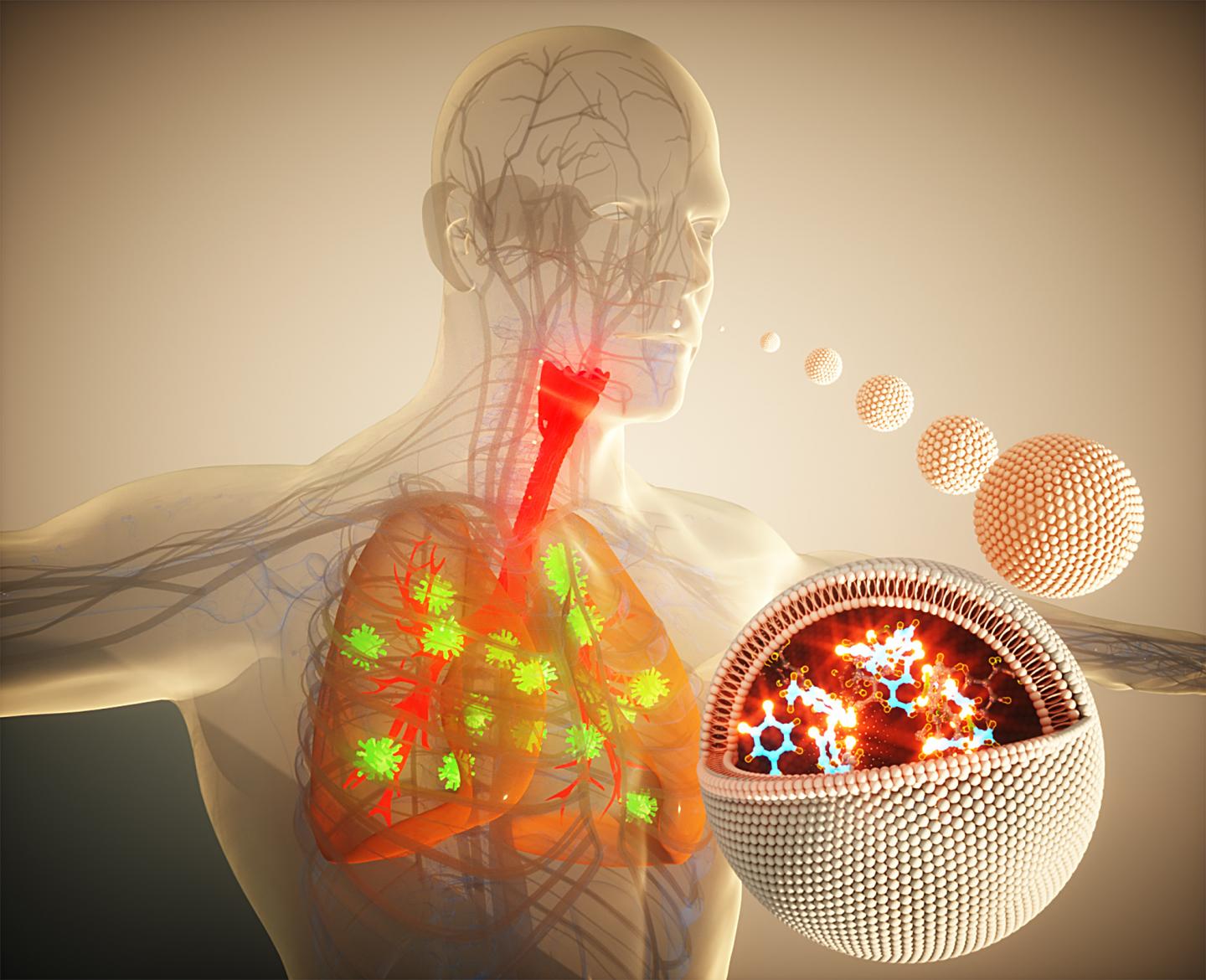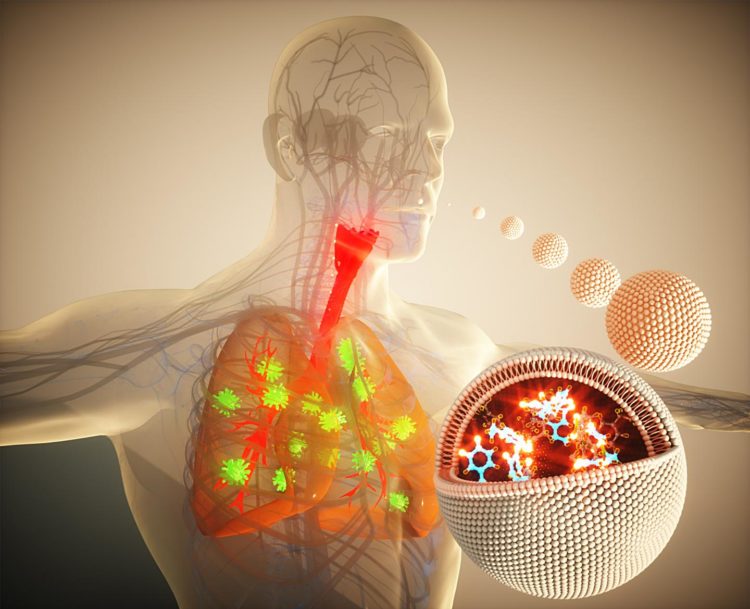
Credit: Ella Maru Studio
WEST LAFAYETTE, Ind. – New support may help Purdue University scientists target what they call one of the greatest threats to human health – antimicrobial resistance.
A Purdue team has received a $3.2 million grant from the National Institutes of Health for its work to treat antibiotic-resistant lower respiratory infections – the fourth-leading cause of death worldwide. Gram-negative respiratory “superbugs” such as Klebsiella pneumoniae, Pseudomonas aeruginosa, and Acinetobacter baumannii have been highlighted by the Infectious Diseases Society of America among the top six dangerous multidrug-resistant microorganisms.
“Unfortunately, the progress to develop novel antibiotics is slow,” said Qi (Tony) Zhou, an assistant professor in Purdue’s College of Pharmacy, who leads the research team. “There is an urgent need to develop alternative strategies for combating this antimicrobial crisis.”
Polymyxins as polypeptide antibiotics have been used increasingly as the last resort against Gram-negative “superbugs.”
The intravenous polymyxins are typically not effective for treatment of lung infections in many patients, due to very limited drug exposure at the infection site and nephrotoxicity. This makes lung infections caused by resistant-bacteria extremely difficult to treat.
New treatment strategies using rational combinations are needed to rescue this last-line class of antibiotics.
“The first NIH grant awarded three years ago enabled us to reinvent the old injectable drug, polymyxins, into a new inhalation therapy,” Zhou said. “We incorporated two synergistic antibiotics into a single microparticle and deliver them directly to the deep lungs, which not only maximizes its therapeutic efficacy but also reduces the systemic side effects.”
In the work under this new grant, Zhou’s team will upgrade the system by incorporating synergistic antibiotics into a nano-sized liposome. A liposome is a spherical vesicle formed from two or more lipid bilayers. The benefits to using liposomes for inhalation therapy include controlled release of the drugs and minimized local irritation in the airways.
Clinical studies have shown that inhaling polymyxins may lead to local irritation. This irritation compromises patients’ compliance, often with patients quitting the therapy prematurely. Incorporating drugs into liposomes has shown to improve local side effects in the airways in some clinical studies.
“Our research not only develops new inhalation therapies, but also examines the mechanism of drug-induced pulmonary side effects and tries to find out how liposomes protect the airways from such side effects. In addition, such platform may also be applied for the treatment of other lung infections including tuberculosis and viral lung infections by loading different drugs,” Zhou said.
This project involves partners from Monash University of Australia, the University of North Carolina and the University of Michigan.
“Infectious disease is one of the signature areas of the Purdue Institute of Inflammation, Immunology, and Infectious Disease (PI4D) and Zhou’s dedicated research and leadership in this field is exemplary in our efforts against the global antimicrobial resistance crisis,” said Thomas Sors, the assistant director of PI4D and a Purdue alumnus.
###
The innovators have worked with the Purdue Research Foundation Office of Technology Commercialization to patent their technologies.
The researchers are looking for partners to continue testing and developing their technology. For more information on licensing and other opportunities, contact Joseph Kasper at OTC at [email protected] and reference track code 2018-ZHOU-68184.
About Purdue Research Foundation Office of Technology Commercialization
The Purdue Research Foundation Office of Technology Commercialization operates one of the most comprehensive technology transfer programs among leading research universities in the U.S. Services provided by this office support the economic development initiatives of Purdue University and benefit the university’s academic activities through commercializing, licensing and protecting Purdue intellectual property. The office recently moved into the Convergence Center for Innovation and Collaboration in Discovery Park District, located on the west side of the Purdue campus. The office is managed by the Purdue Research Foundation, which received the 2019 Innovation and Economic Prosperity Universities Award for Place from the Association of Public and Land-grant Universities. The Purdue Research Foundation is a private, nonprofit foundation created to advance the mission of Purdue University. Visit the Office of Technology Commercialization for more information.
Writer: Chris Adam, 765-588-3341, [email protected]
Source: Qi (Tony) Zhou, [email protected]
Media Contact
Chris Adam
[email protected]
Original Source
https:/





